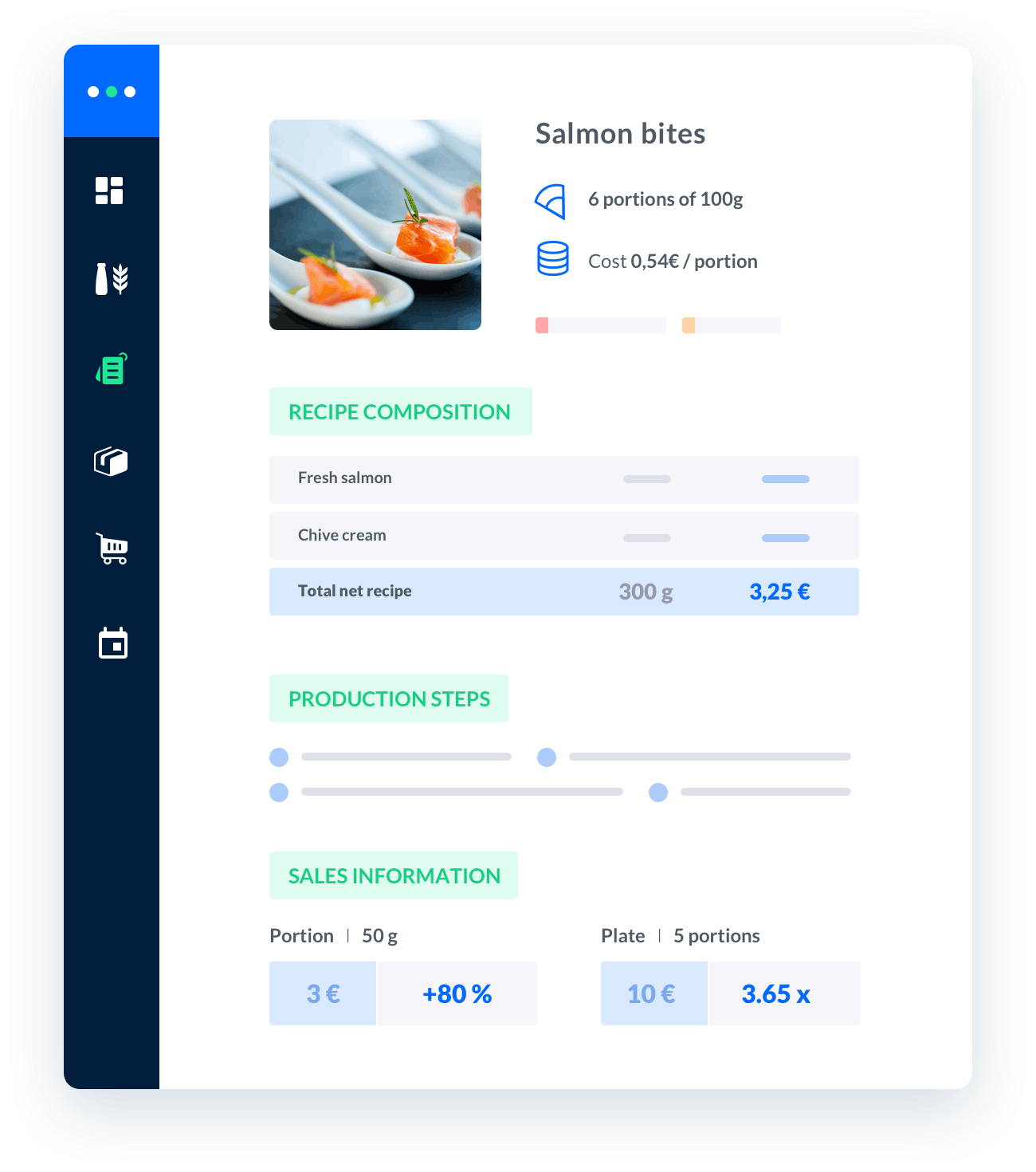variable costs for a restaurant
In the restaurant industry, understanding and managing variable costs is crucial for maintaining profitability and success.Variable costs are expenses that fluctuate according to the volume of business and can directly impact the bottom line of a restaurant.

Melba: the food cost app to optimize the profitability of your restaurant
Discover how to optimize the profitability of your restaurant with melba

The ultimate guide to food cost restaurant
Learn more about the food cost basis and how to reduce your food cost percentage
In the restaurant industry, understanding and managing variable costs is crucial for maintaining profitability and success. Variable costs are expenses that fluctuate according to the volume of business and can directly impact the bottom line of a restaurant. By effectively controlling and optimizing these costs, restaurant owners and managers can improve financial performance and ensure long-term sustainability. In this article, we will delve into the various aspects of variable costs for a restaurant, providing valuable insights and practical tips for effective management.
The Importance of Variable Costs
Variable costs play a significant role in the financial health of a restaurant. Unlike fixed costs, which remain constant regardless of business volume, variable costs are directly linked to the level of activity. Understanding and tracking these costs allows restaurant owners to make informed decisions, identify areas of improvement, and implement strategies to reduce expenses and maximize profits.
Food Costs
Food costs are a major component of variable costs in the restaurant industry. These expenses include the cost of purchasing ingredients, raw materials, and supplies necessary for preparing menu items. To effectively manage food costs, restaurant professionals should consider the following:
- Menu Engineering: Analyze the profitability of each menu item and focus on promoting high-margin dishes. By strategically pricing and promoting these items, restaurants can increase revenue while maintaining food costs.
- Inventory Management: Implement efficient inventory tracking systems to prevent wastage, spoilage, and theft. Regular inventory audits and proper storage practices can help control food costs and minimize losses.
- Supplier Relationships: Develop strong relationships with reliable suppliers to negotiate favorable prices, discounts, and special offers. Regularly reviewing and comparing prices from different vendors can ensure competitive pricing and optimal cost management.
Labor Costs
Labor costs constitute a significant portion of variable expenses in the restaurant industry. These costs include wages, salaries, payroll taxes, and benefits for the restaurant staff. To effectively manage labor costs, consider the following strategies:
- Scheduling Optimization: Analyze historical sales data and customer traffic patterns to create efficient staff schedules. Balancing the number of employees with customer demand can help avoid overstaffing or understaffing, optimizing labor costs.
- Training and Cross-Training: Invest in comprehensive training programs to enhance employee skills and productivity. Cross-training employees across different roles enables flexibility and ensures better coverage during peak hours, reducing the need for additional staff.
- Performance Management: Regularly evaluate employee performance and provide constructive feedback. Recognize and reward top performers, while addressing any performance issues promptly. Efficient staff management can boost productivity and reduce turnover, positively impacting labor costs.
Controlling Other Variable Costs
Utilities and Energy Costs
Utilities and energy costs are another significant component of variable expenses for restaurants. These costs encompass electricity, gas, water, and waste disposal. To control these expenses, consider the following strategies:
- Energy-Efficient Equipment: Invest in energy-efficient appliances, lighting, and HVAC systems. Such equipment may have a higher initial cost but can lead to substantial long-term savings on utility bills.
- Regular Maintenance: Ensure that all equipment is properly maintained and serviced at regular intervals. Well-maintained appliances operate more efficiently, reducing energy consumption and minimizing repair costs.
- Water Conservation: Implement water-saving measures such as low-flow faucets, toilets, and dishwashers. Encourage staff to adopt water conservation practices during daily operations.
Marketing and Advertising Costs
Marketing and advertising costs are variable expenses that depend on the promotional activities and campaigns undertaken by the restaurant. To effectively manage these costs, consider the following:
- Targeted Marketing: Identify your target audience and focus marketing efforts on channels that reach them most effectively. Utilize social media platforms, email marketing, and local advertising to efficiently allocate marketing budgets.
- Referral Programs: Encourage satisfied customers to refer friends and family through referral programs. This cost-effective strategy can help generate new business without incurring significant advertising expenses.
- Online Presence: Maintain an updated and engaging website, leverage search engine optimization (SEO) techniques, and utilize online review platforms to enhance visibility and attract potential customers.
Conclusion
Effective management of variable costs is essential for the success of any restaurant. By understanding and controlling food costs, labor costs, utilities, and energy costs, as well as marketing and advertising expenses, restaurant owners and managers can improve profitability and ensure long-term sustainability. Implementing strategic cost control measures, optimizing operational efficiency, and consistently monitoring financial performance are key steps toward achieving financial success in the competitive restaurant industry.






